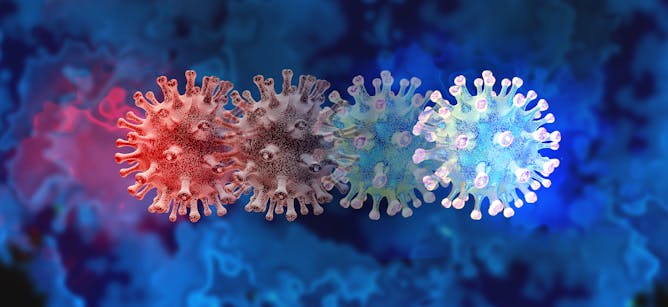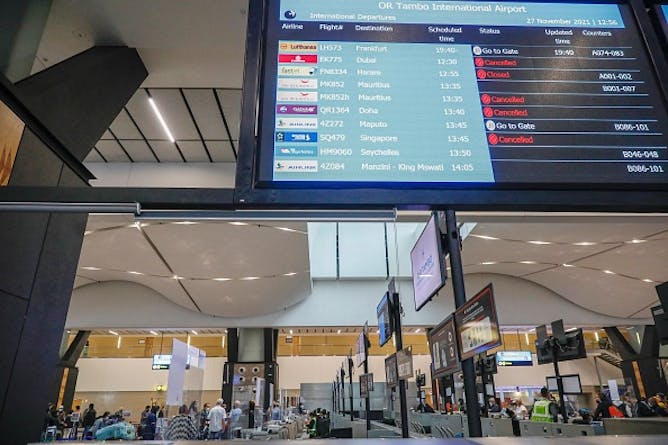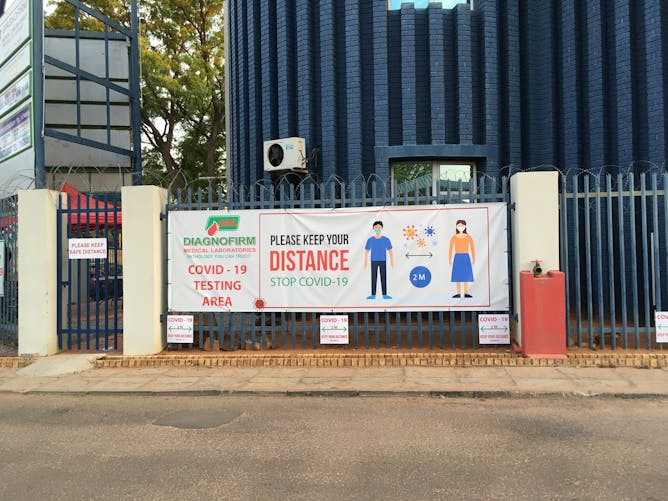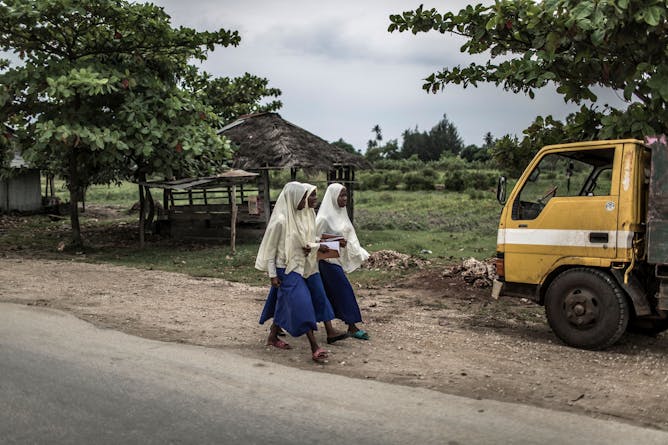|
Dozens of countries have introduced travel bans as governments digest the news that a new variant of SARS-CoV-2 had been identified. But is this an effective approach to manage the spread of Omicron, the name the World Health Organization has assigned to the new variant? Shabir Madhi argues not. All they do is delay the inevitable. Governments should rather impose rigorous exit and entry screening programmes to identify potential cases - and mandate
vaccinations. Travel bans are on Madhi’s list of things that aren’t worth doing. He also spells out 10 steps worth pursuing.
For their part Wolfgang Preiser and his colleagues explain how scientists “hunt” for new coronavirus variants and share what they know already about this one.
|

Scientists find variants by sequencing samples from people that have tested positive for the virus.
Lightspring/Shutterstock
Prof. Wolfgang Preiser, Stellenbosch University; Cathrine Scheepers, University of the Witwatersrand; Jinal Bhiman, National Institute for Communicable Diseases; Marietjie Venter, University of Pretoria; Tulio de Oliveira, University of KwaZulu-Natal
There’s a new COVID lineage called B.1.1.529. It has a genetic profile very different from other circulating variants
|

What not to do: ban travel. Scenes at South Africa’s OR Tambo International airport after the first flight bans were announced.
Phill Magakoe / AFP via Getty Images
Shabir A. Madhi, University of the Witwatersrand
The world needs to learn to live with the virus. And governments must follow the science and don’t distort it for political expediency.
|

Shutterstock
Jennifer Juno, The Peter Doherty Institute for Infection and Immunity; Adam Wheatley, The University of Melbourne
With low COVID vaccination coverage in southern Africa, some have suggested global vaccine inequities may be responsible for the emergence of Omicron.
|
|
|
-
Nimrod Zalk, University of Cape Town
African countries can’t afford to tread water waiting for the global multilateral and private financing system to become more equitable.
-
Stephen Langston, University of the West of Scotland
Beyond just his music, Freddie Mercury’s performances, style, and fluidity influenced both his generation and those that followed.
-
Richard Faragher, University of Brighton; Nir Barzilai, Albert Einstein College of Medicine
Many centenarians haven’t lived healthy lives, so are they genetically different?
-
Jolanta Burke, RCSI University of Medicine and Health Sciences
Some people might struggle a little harder to enhance their wellbeing than others.
-
Joseph Bak-Coleman, University of Washington
Research from Meta and some scientists shows no harm from social media, but other research and whistleblower testimony show otherwise. Seemingly contradictory, both can be right.
|
|

To fight economic inequality, female dependency on relationships and gender-based violence, female education is critical.
GULSHAN KHAN/AFP via Getty Images
Hilton Humphries, Centre for the AIDS Program of Research in South Africa (CAPRISA)
Adolescent girls and young women aged 15 to 24 accounted for 25% of new infections, while making up only 10% of the population.
|